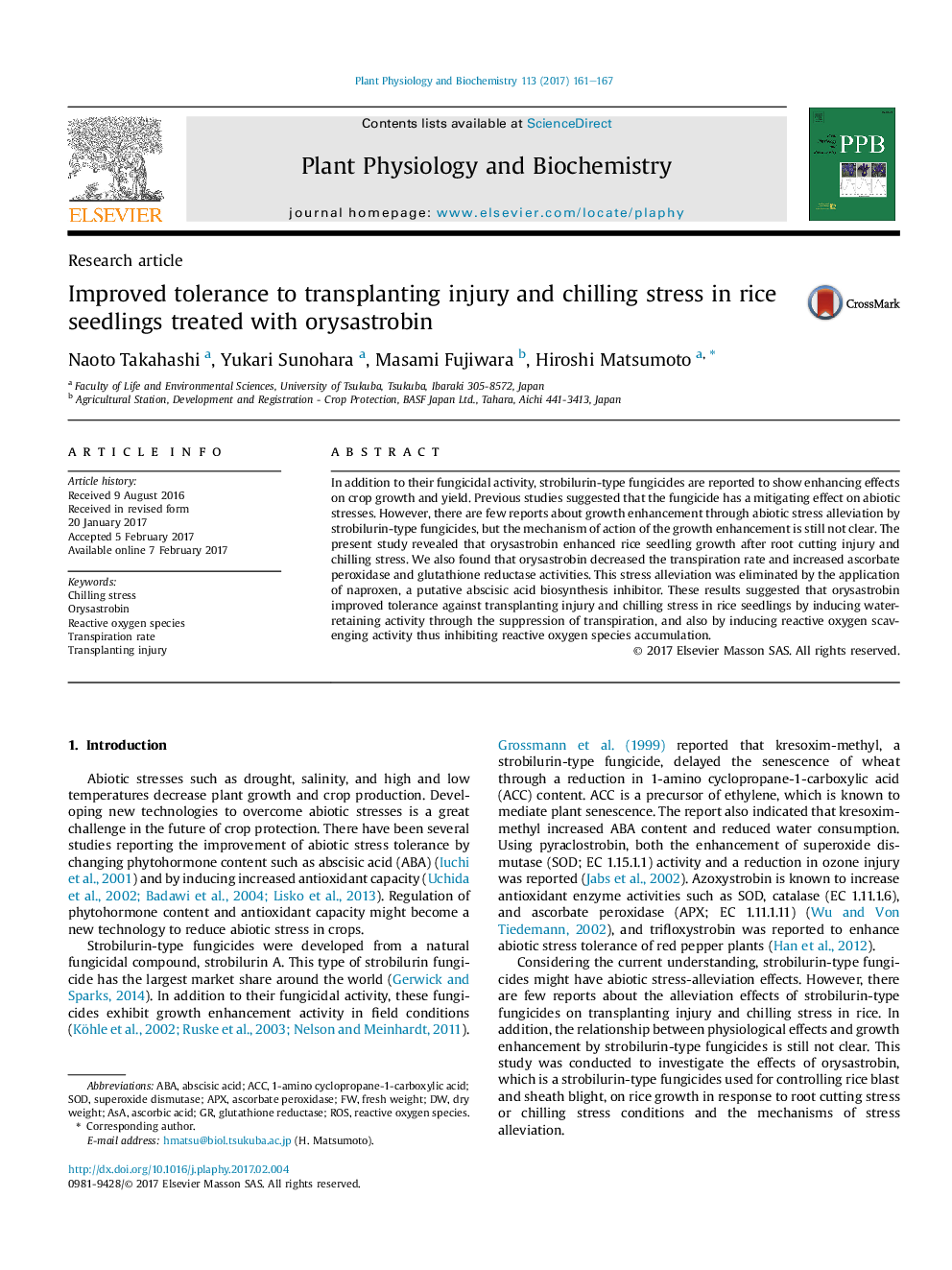| Article ID | Journal | Published Year | Pages | File Type |
|---|---|---|---|---|
| 5515606 | Plant Physiology and Biochemistry | 2017 | 7 Pages |
â¢Orysastrobin improved tolerance for transplanting injury and chilling stress in rice seedlings.â¢Orysastrobin decreased root-cutting injury- or chilling stress-induced water loss and H2O2 overproduction.â¢Orysastrobin decreased the transpiration rate and increased ascorbate peroxidase and glutathione reductase activities.â¢This stress alleviation was eliminated by the application of naproxen, a putative abscisic acid biosynthesis inhibitor.
In addition to their fungicidal activity, strobilurin-type fungicides are reported to show enhancing effects on crop growth and yield. Previous studies suggested that the fungicide has a mitigating effect on abiotic stresses. However, there are few reports about growth enhancement through abiotic stress alleviation by strobilurin-type fungicides, but the mechanism of action of the growth enhancement is still not clear. The present study revealed that orysastrobin enhanced rice seedling growth after root cutting injury and chilling stress. We also found that orysastrobin decreased the transpiration rate and increased ascorbate peroxidase and glutathione reductase activities. This stress alleviation was eliminated by the application of naproxen, a putative abscisic acid biosynthesis inhibitor. These results suggested that orysastrobin improved tolerance against transplanting injury and chilling stress in rice seedlings by inducing water-retaining activity through the suppression of transpiration, and also by inducing reactive oxygen scavenging activity thus inhibiting reactive oxygen species accumulation.
